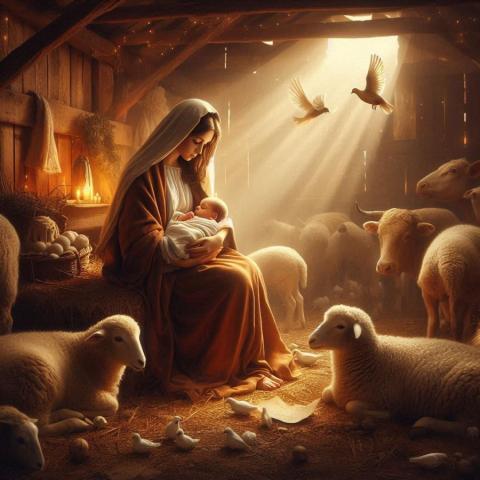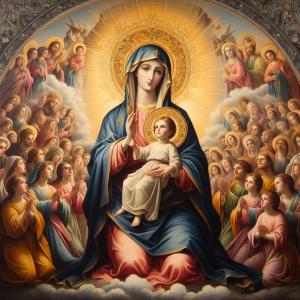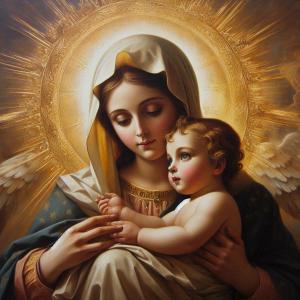
The birth of Jesus, as described in the Bible, took place in humble and modest surroundings, specifically in Bethlehem, during the time of a Roman census ordered by Emperor Augustus.
-
Bethlehem: A small town in Judea, known as the City of David because King David was born there. It was a place of ancient significance for the Jewish people.
-
Journey to Bethlehem: Mary, heavily pregnant, traveled with Joseph from their home in Nazareth to Bethlehem. This journey, over 90 miles, was undertaken because Joseph, being of the lineage of King David, had to register in Bethlehem for the census.
-
Upon arriving in Bethlehem, Mary and Joseph found no room available in the town’s inns or guest houses due to the large number of people arriving for the census. As a result, they took shelter in a stable or a cave used to house animals, a place meant for livestock, not humans.
Mary gave birth to Jesus in this setting and laid him in a manger. A manger is a feeding trough for animals, typically made of wood or stone. It symbolizes the humble circumstances of Jesus' birth, contrasting with the traditional expectations of grandeur for the birth of a king.
Birth of Jesus:
The Virgin Mary, according to Christian belief, conceived Jesus through the Holy Spirit, making the birth miraculous in nature. However, the act of childbirth itself would have been very human and ordinary, occurring in the rough surroundings of a stable.
After giving birth, Mary wrapped Jesus in swaddling clothes, which were strips of cloth used to wrap newborns tightly for warmth and comfort.
After Jesus' birth, angels announced his arrival to nearby shepherds, who came to the stable to see the newborn baby. These shepherds were the first to witness Jesus' birth, representing the common people, to whom Jesus’ message would be especially meaningful.
The birth of Jesus is remembered as a moment of humility and simplicity, with the Savior of the world born in a place meant for animals, surrounded by basic and rough accommodations, and first greeted by shepherds rather than rulers or dignitaries.


